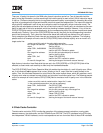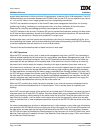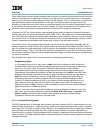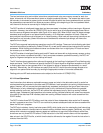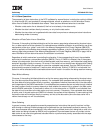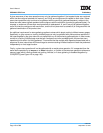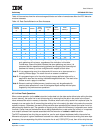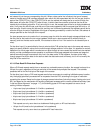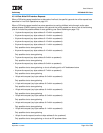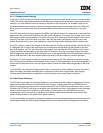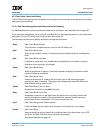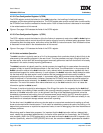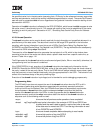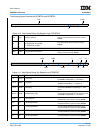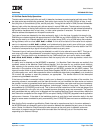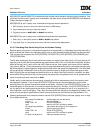
User’s Manual
Preliminary PPC440x5 CPU Core
cache.fm.
September 12, 2002
Page 123 of 589
4.3.1.6 Data Write PLB Interface Requests
When a PLB write request results from a data cache line flush, the specific type and size of the request is as
described in Line Flush Operations on page 121.
When a PLB write request results from store operations to caching-inhibited, write-through, and/or store
without allocate (SWOA) memory locations, the type and size of the request can be any one of the following
(this list includes the possible effects of store gathering; see Store Gathering on page 119):
• 1-byte write request (any byte address 0–15 within a quadword)
• 2-byte write request (any byte address 0–14 within a quadword)
• 3-byte write request (any byte address 0–13 within a quadword)
• 4-byte write request (any byte address 0–12 within a quadword)
• 5-byte write request (any byte address 0–11 within a quadword)
Only possible due to store gathering
• 6-byte write request (any byte address 0–10 within a quadword)
Only possible due to store gathering
• 7-byte write request (any byte address 0–9 within a quadword)
Only possible due to store gathering
• 8-byte write request (any byte address 0–8 within a quadword)
Only possible due to store gathering, or due to a floating-point or AP doubleword store
• 9-byte write request (any byte address 0–7 within a quadword)
Only possible due to store gathering
• 10-byte write request (any byte address 0–6 within a quadword)
Only possible due to store gathering
• 11-byte write request (any byte address 0–5 within a quadword)
Only possible due to store gathering
• 12-byte write request (any byte address 0–4 within a quadword)
Only possible due to store gathering
• 13-byte write request (any byte address 0–3 within a quadword)
Only possible due to store gathering
• 14-byte write request (any byte address 0–2 within a quadword)
Only possible due to store gathering
• 15-byte write request (any byte address 0–1 within a quadword)
Only possible due to store gathering
• 16-byte line write request (must be to byte address 0 of a quadword)
Only possible due to store gathering, or due to an AP quadword store



